Easy Building Vocabulary worksheets activities for Ages 4-7
6 filtered results
-
From - To
Discover our engaging "Building Vocabulary" worksheets designed specifically for children ages 4-7! These easy-to-use activities help young learners enhance their vocabulary through enjoyable exercises tailored to their developmental stage. Each worksheet features colorful illustrations and interactive tasks to captivate children’s attention and inspire a love for language. From matching words with pictures to fill-in-the-blank challenges, these activities foster creativity and comprehension. Ideal for home or classroom use, our vocabulary worksheets encourage independent learning while providing essential skills for reading and communication. Start building a strong vocabulary foundation for your child today by exploring our collection of fun, educational resources!
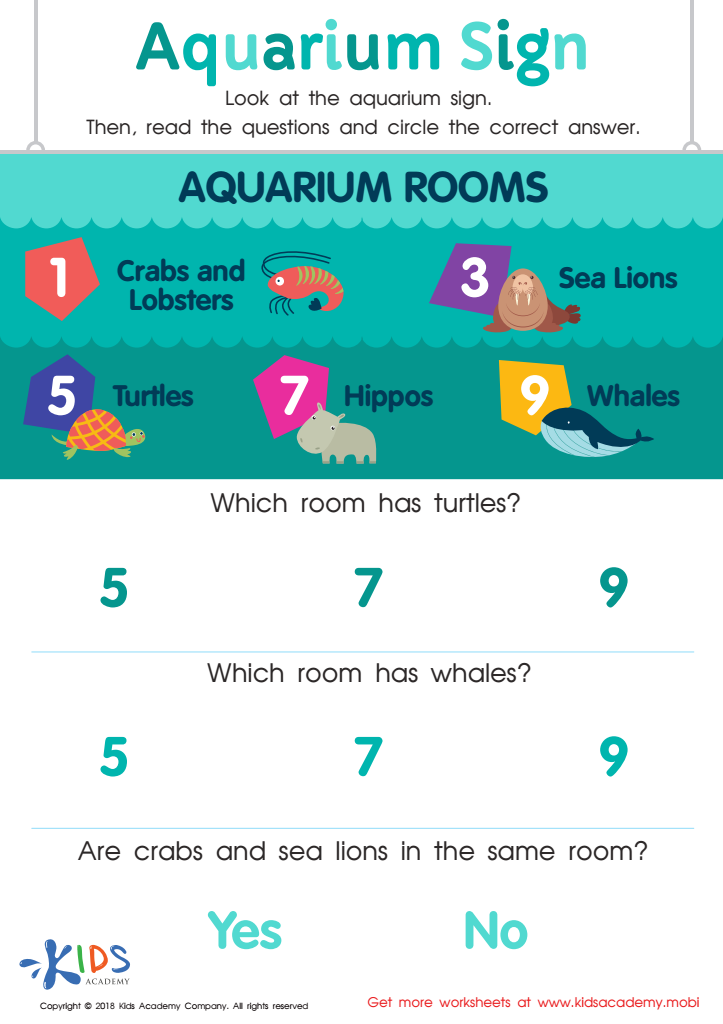

Assessment: Aquarium Sign Worksheet
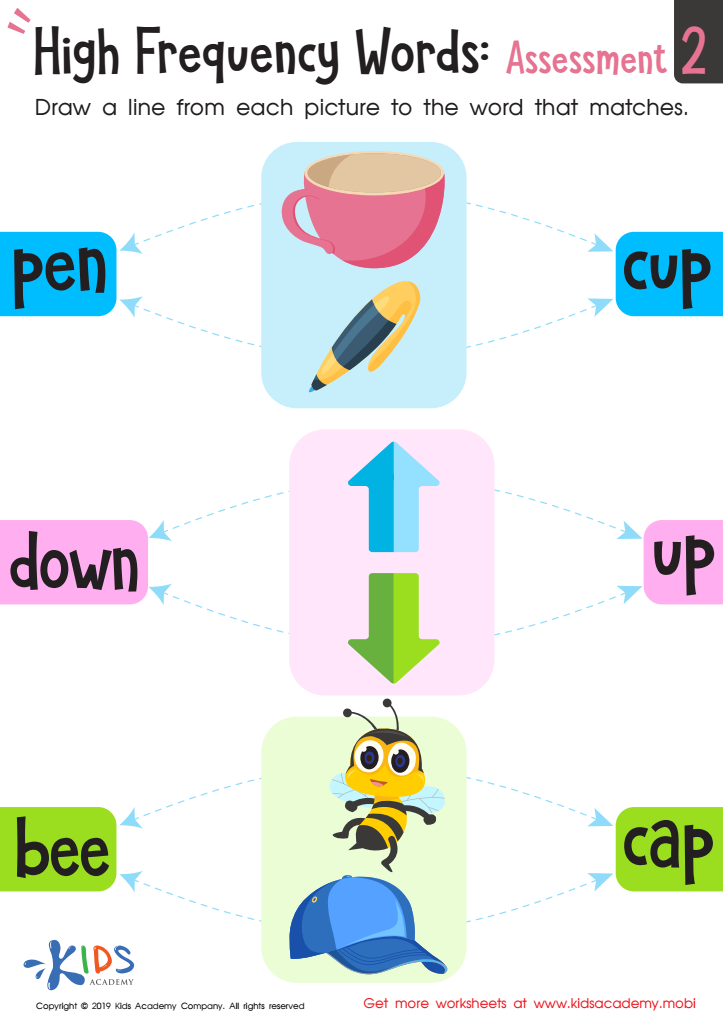

High Frequency Words: Assessment 2 Worksheet
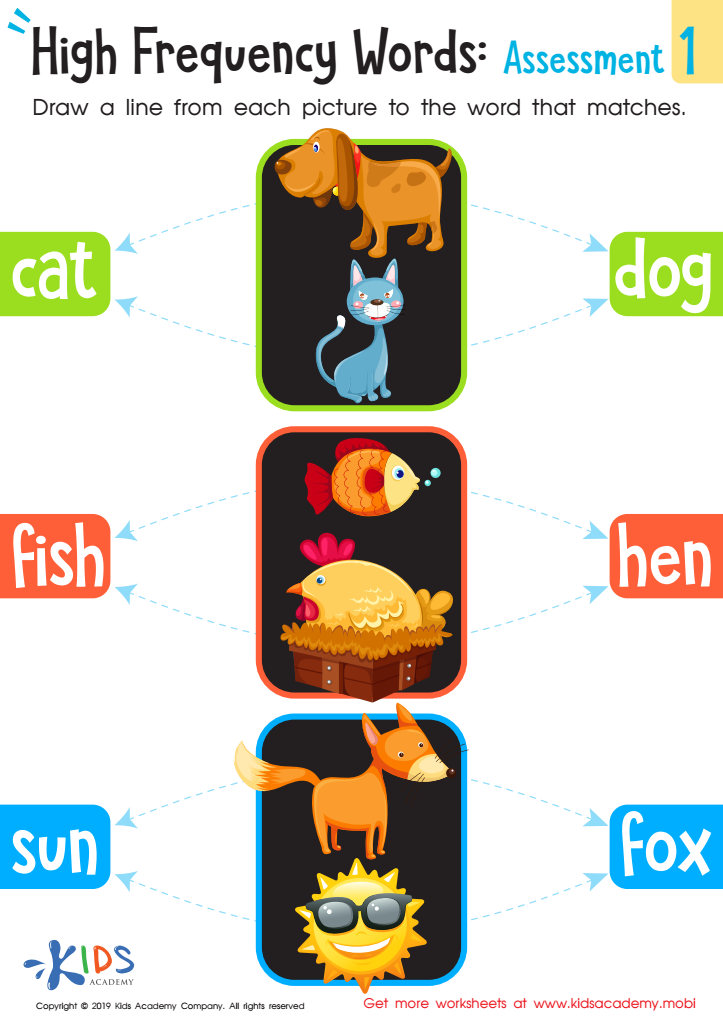

High Frequency Words: Assessment 1 Worksheet
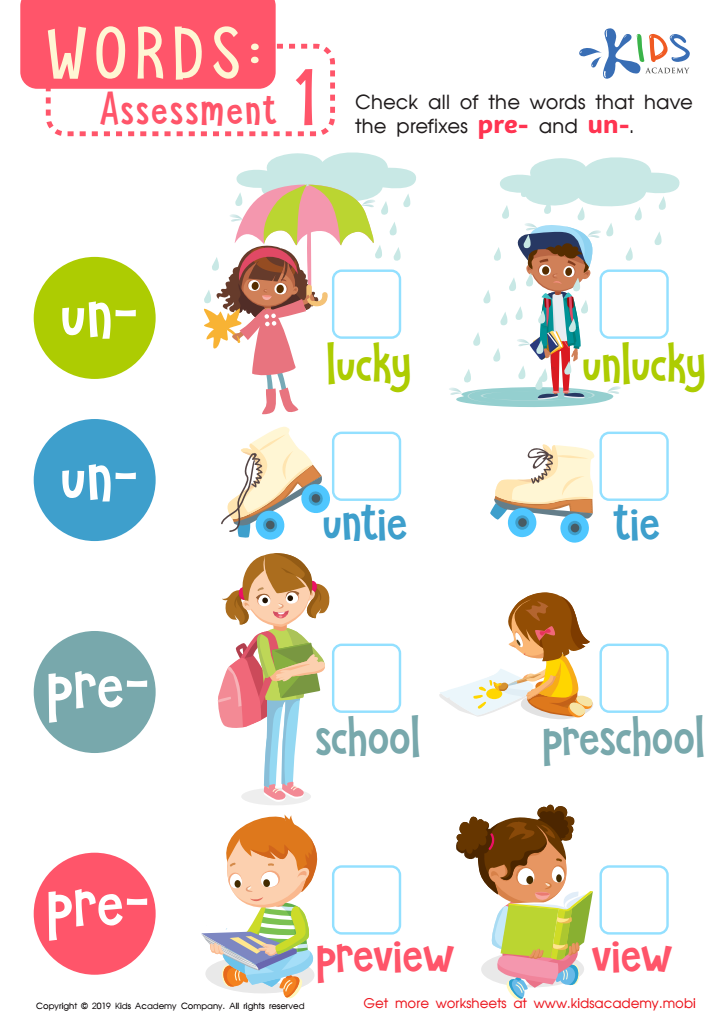

Words: Assessment 1 Worksheet
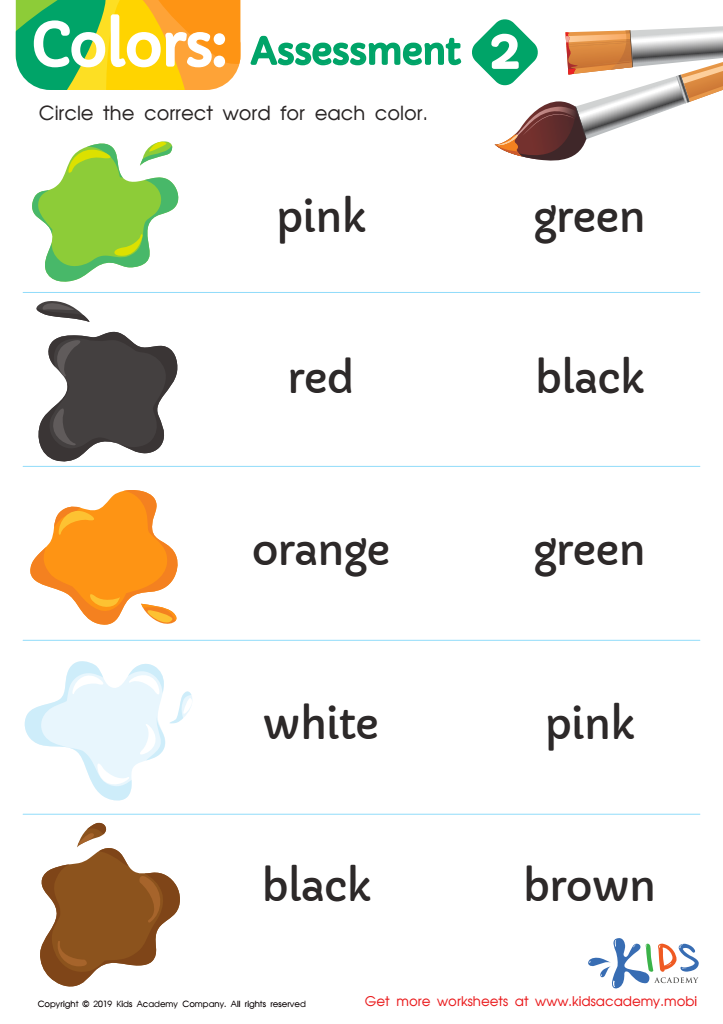

Colors: Assessment 2 Worksheet
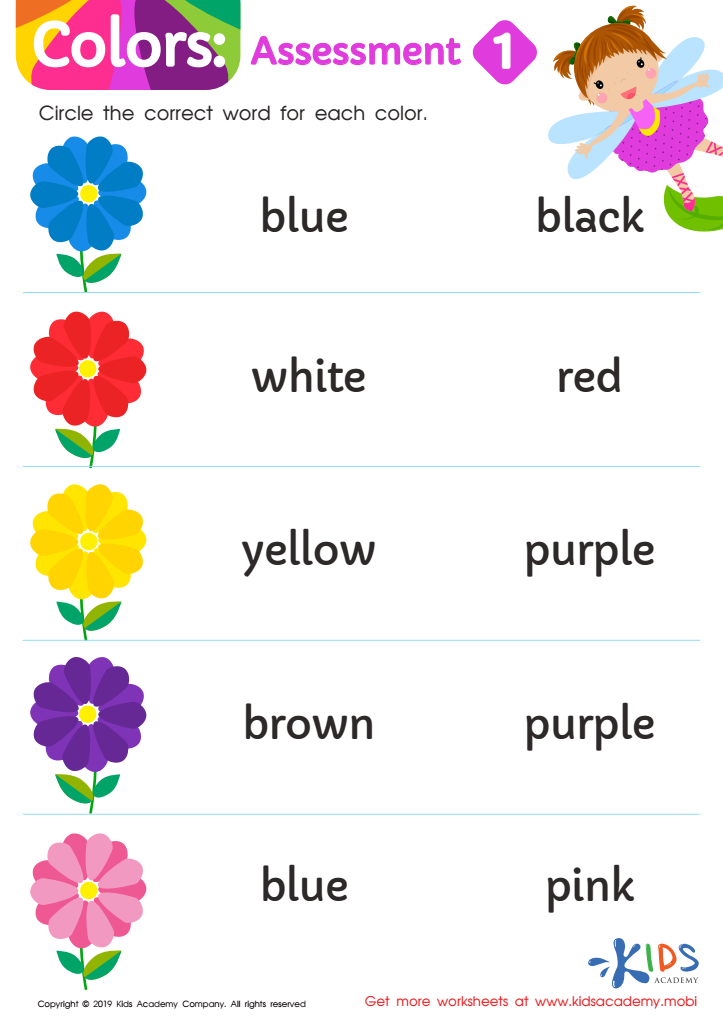

Colors: Assessment 1 Worksheet
Parents and teachers should prioritize Easy Building Vocabulary activities for children aged 4-7 because these foundational years are critical for language development. During this stage, children are rapidly acquiring language skills that form the basis for their future reading and writing abilities. Engaging in vocabulary-building activities enriches their linguistic repertoire, helps them express thoughts clearly, and enhances their comprehension skills.
Interactive vocabulary activities, such as word games, storytelling, and rhyming exercises, create a fun learning environment that encourages active participation. This not only captures children's interest but also fosters a love for language and learning. Through these activities, children learn to make connections between words and concepts, laying the groundwork for critical thinking and problem-solving skills.
Furthermore, a robust vocabulary is linked to academic success and broader social skills. Children who can communicate effectively with peers and adults are better positioned to navigate relationships and collaborate in team settings. Supporting vocabulary development ensures that children become confident speakers and writers, which is essential for their overall educational journey and future opportunities. By investing time in Easy Building Vocabulary activities, parents and teachers can equip children with essential tools for lifelong learning and communication.
 Assign to My Students
Assign to My Students














